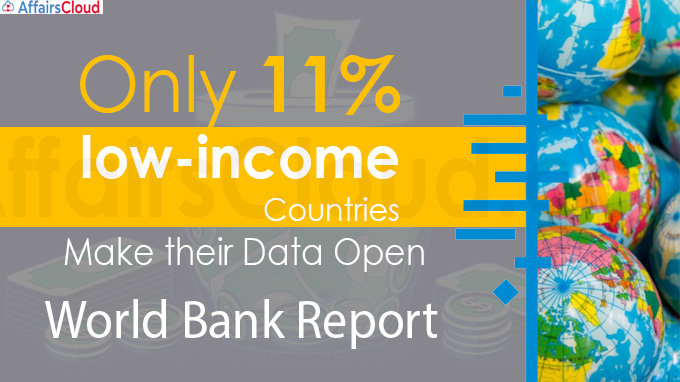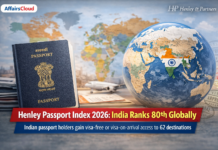 According to the ‘World Development Report 2021 : Data for better lives’ (WDR 2021) released by World Bank Group, Most countries across the globe shy away from an Open-data policy. It states that only 11% low-income countries made available a license classifiable as ‘open’.
According to the ‘World Development Report 2021 : Data for better lives’ (WDR 2021) released by World Bank Group, Most countries across the globe shy away from an Open-data policy. It states that only 11% low-income countries made available a license classifiable as ‘open’.
The report has provided an assessment of openness of data, by income group
| Indicator | Low-Income | Lower-middle-income | Upper-middle-income | High-income |
|---|---|---|---|---|
| Openness Score (0-100) | 38 | 47 | 50 | 66 |
| Open terms of Use/License (%) | 11 | 19 | 22 | 44 |
Under-investments
The report highlighted underinvestment by Countries in Open data systems
- As of 2019, only half the countries had a national statistical plan that was fully funded.
- 93% of high-income countries had a fully funded national statistical plan, while not even a single low-income country had one.
- The major reasons behind the inability of low income countries to harness the potential of data were Lack of institutions, decision-making autonomy, and financial resources.
Gaps in Data on women & Girls
- The report states that gaps in data on women and girls were severe: Only 10 of the 54 gender-specific indicators (19%) in the UN SDG goals were available.
- Only 24% of the available gender-specific indicators were from 2010 or later.
Regarding India
- There is an absence of data on Poverty in India.
- India monitors 54 out of 130 SDG indicators, the overall number of monitored indicators has gone up.
- However, the State of India’s Environment in figures, 2020 points out that India has dropped 4 indicators from its tracking list.
Benefits of Open Data Policy
- Improved Service Delivery
- Prioritisation of Scarce Resources
- Holding governments accountable and empowering individuals
- Better emergency response during disasters – environmental, financial, health or conflict-related. The Odisha State Disaster Management Authority invested in acquiring data on weather forecast & disaster response measures after the cyclone in 1999.
Indian e-commerce rules biased: WDR report
According to the World Bank’s World Development Report titled ‘Stronger Data Systems Needed to Fight Poverty’, India’s e-commerce regulations may be biased towards local companies, thus failing to provide a level playing field to foreign platforms.
- In 2018, India prohibited foreign e-commerce companies from ownership or control over the inventory of seller partners on their platforms.
- India has strict guidelines governing Foreign Direct Investment (FDI) in e-commerce firms.
Recent Related News:
i.October 14, 2020, According to International Debt Statistics 2021 released by the World Bank Group, COVID-19 has deepened the Debt Crisis in Developing Countries.
About World Bank Group
President – David Malpass
Headquarters – Washington DC, USA




